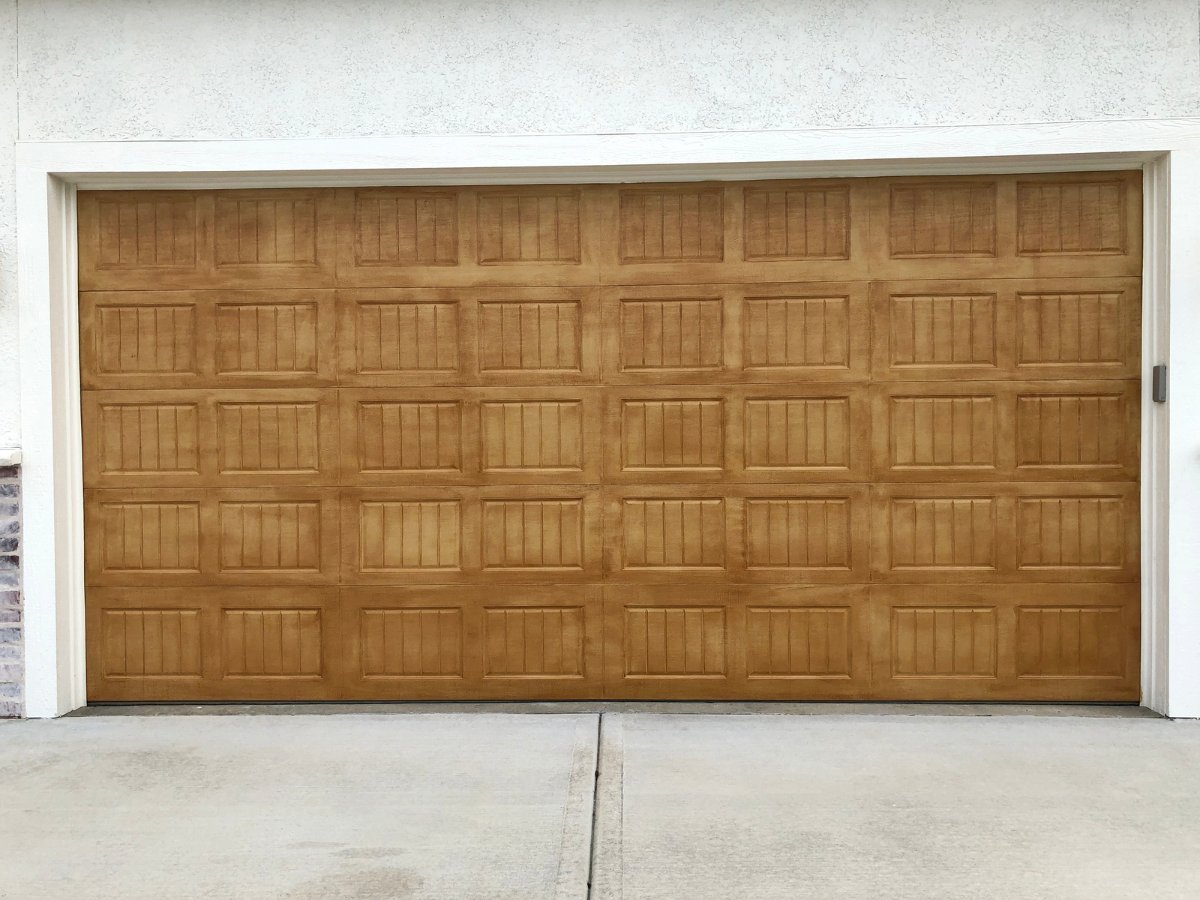A fresh garage door can instantly enhance the look of your garage and property. Whether you’re building a new home or looking to upgrade your existing garage, it’s essential to understand the cost factors involved in getting a new garage door. The price of a new garage door can vary depending on several factors, including the material, size, design, customization, and labor.
In this comprehensive guide, we will break down the different factors that impact the cost of a new garage door, discuss the various types and their costs, explore advanced features and customizations, explain the installation costs, and provide tips on maximizing your investment. By the end of this guide, you will have a clear understanding of garage door costs and be equipped to make an informed decision.
The Impact of Material on Price
The choice of material for your garage door significantly impacts the overall price. Different materials have different costs, durability, maintenance requirements, and aesthetic appeal. Here are some popular garage door materials and their price ranges:
- Steel: Steel garage doors are the most popular option due to their durability and affordability. They are available in various styles and finishes and offer excellent security. The price range for steel garage doors is typically $600-$2,000.
- Aluminum: Aluminum garage doors are lightweight and resistant to rust. They are an excellent choice for coastal areas or places with high humidity. The price range for aluminum garage doors is usually $700-$2,100.
Size and Its Role in Cost Determination
The size of the garage door is another essential factor influencing the cost. Garage doors come in different sizes to accommodate various types of garages. The size you choose will depend on the dimensions of your garage and the type of vehicle you plan to park inside.
Keep in mind that the size of your garage will determine the size of the garage door you need. It’s essential to measure the opening accurately to ensure a proper fit. If you have specific requirements or a non-standard garage size, consider custom-made garage doors, which can be pricier.
Types of Garage Doors and Their Costs
Several types of garage doors are available, each with unique characteristics and price ranges. The type of garage door you choose will depend on your aesthetic preferences, functional requirements, and budget. Here are some common types of garage doors and their average costs:
- Roll-up Door: These traditional doors roll onto a mounted bar, maximizing space and providing a clean look. Roll-up doors are available in different materials and colors. The average cost for a roll-up door is around $950.
- Tilt-up Door: Tilt-up doors swing out toward the driveway to open and are made of one solid material. They are also known as canopy-style doors and are less common. The average cost for a tilt-up door is around $850.
Insulated vs. Non-Insulated Options
Insulation is an important consideration when choosing a garage door. Insulated garage doors offer several benefits, including improved energy efficiency, noise reduction, and increased durability. Here are some factors to consider when deciding between an insulated or non-insulated garage door:
- Energy Efficiency: Insulated garage doors help regulate the temperature inside the garage, making it more comfortable and energy-efficient. They can help reduce heating and cooling costs, especially if your garage is attached to your home. The average cost for an insulated garage door is around $900-$2,000.
- Noise Reduction: Insulated garage doors can help reduce noise from outside sources, such as street traffic or neighboring activities. This can be particularly beneficial if you use your garage as a workshop or living space.
- Durability: Insulated garage doors are usually more durable and resistant to denting than non-insulated doors. They are also less likely to warp or sag over time.
Smart Garage Door Openers
Smart garage door openers offer convenience and peace of mind by allowing you to control and monitor your garage door from your smartphone. Here are some key features and benefits of smart garage door openers:
- Remote Access: A smart garage door opener allows you to open and close your garage door remotely using your smartphone. This is especially useful if you need to give someone access when you’re not at home.
- Monitoring and Notifications: Smart garage door openers can notify your smartphone when your garage door is opened or closed. This allows you to keep track of who is entering or leaving your garage.
- Integration with Smart Home Systems: Many intelligent garage door openers can be integrated with other smart home devices, such as voice assistants or security systems. This allows for seamless automation and control of your garage door.
Installation Costs Explained
Garage door installation typically involves several steps and requires professional expertise. The installation cost depends on various factors, including the complexity of the installation, the size of the door, and the location. Here are some key considerations when it comes to installation costs:
- Labor Costs: The labor costs for garage door installation usually range from $160 to $470. However, the exact cost will depend on the complexity of the installation and the region you are in.
- Additional Tasks: In addition to installing the door itself, installation may involve removing the existing door, resizing the entryway, aligning and securing door tracks, assembling door sections, and installing spring and support cables.
DIY Installation vs. Professional Services
Installing a garage door can be complex and challenging, requiring specialized knowledge and tools. While some homeowners may consider DIY installation to save on labor costs, weighing the potential risks and benefits is essential. Here are some factors to consider when deciding between DIY installation and professional services:
- Skill Level: Installing a garage door is not a one-person job, even for experienced DIYers. It requires knowledge of electrical systems, proper measurements, and heavy lifting. If you need more confidence in your abilities, hiring a professional is best.
- Safety: Garage doors are heavy and have high-tension springs, making installation dangerous. Professional installers have the necessary training and equipment to handle the job safely.
- Time and Complexity: Installing a garage door can be time-consuming, especially for those without experience. Professionals can complete the installation more efficiently, saving time and ensuring a proper fit.
- Warranty and Quality Assurance: Professional installers often provide warranties on their work, giving you peace of mind. They also have the expertise to address any issues during the installation process.
DIY installation may be an option if you have the necessary skills, tools, and experience and feel confident in your ability to install a garage door. However, hiring a professional contractor is the safest and most efficient choice for most homeowners.
The True Cost of Automatic vs. Manual Garage Doors
One important decision when choosing a garage door is whether to opt for an automatic or manual door. Both options have their advantages and considerations. Here is a breakdown of the actual cost of automatic and manual garage doors:
- Automatic Garage Door: Installing an automatic garage door offers convenience and ease of use. The average cost for an automatic garage door opener is around $420-$770, including installation.
- Manual Garage Door: A garage door does not require an opener and is operated manually. Manual doors are generally more affordable upfront but may require more effort to open and close.
Consider your lifestyle, budget, and convenience when deciding between an automatic or manual garage door. Automatic doors provide additional functionality but come with higher upfront costs. Initial Costs and Long-term Benefits
Ease of Use and Security Features
Automatic garage doors offer several features that enhance ease of use and improve security. Here are some key features to consider:
- Convenience: Automatic garage doors allow you to open and close the door with a button, eliminating the need to lift the door manually. This is especially beneficial during inclement weather or when you’re carrying heavy items.
- Keyless Entry: Many automatic garage doors, such as keypads or remote controls, have keyless entry options. This allows you to enter your garage without a physical key, providing added convenience and security.
- Safety Features: Automatic garage doors have safety features such as sensors that detect obstructions and reverse the door’s direction to prevent accidents. These safety features provide peace of mind, especially if you have children or pets.
When making your decision, consider the ease of use and security features offered by automatic garage doors. These features provide convenience, enhance security, and improve the overall functionality of your garage door.
Everyday Repair Needs and Their Costs
Garage doors may require occasional repairs due to normal wear and tear or accidents. Here are some everyday repair needs and their associated costs:
- Damaged Panels: Accidental damage or exposure to extreme weather conditions can cause dents or cracks in garage door panels. The panel replacement cost can vary depending on the material and size of the door but may range from $200-$600 per panel.
- Malfunctioning Opener: If your garage door opener is not functioning correctly, it may require repair or replacement. The cost of repairing an opener can range from $125-$350, while the cost of a new opener can range from $300-$500.
- Worn-out Rollers: Garage door rollers can wear out over time, causing the door to move unevenly or make excessive noise. The cost of replacing garage door rollers can range from $100-$200, depending on the type and number of rollers.
Best Times to Buy a New Garage Door
If you’re looking to save money on a new garage door, consider the best times to make your purchase. Garage door sales and seasonal discounts can often help you get a great deal.
Whether opting for a traditional or contemporary design, insulated or non-insulated options, or considering advanced features like intelligent openers and decorative hardware, weighing the upfront costs against long-term benefits is essential.
Moreover, knowing when to repair or replace, choosing energy-efficient models, and being aware of hidden maintenance expenses can help maximize your investment. By navigating sales and discounts strategically, you can make a cost-effective choice that suits your needs and budget perfectly.





